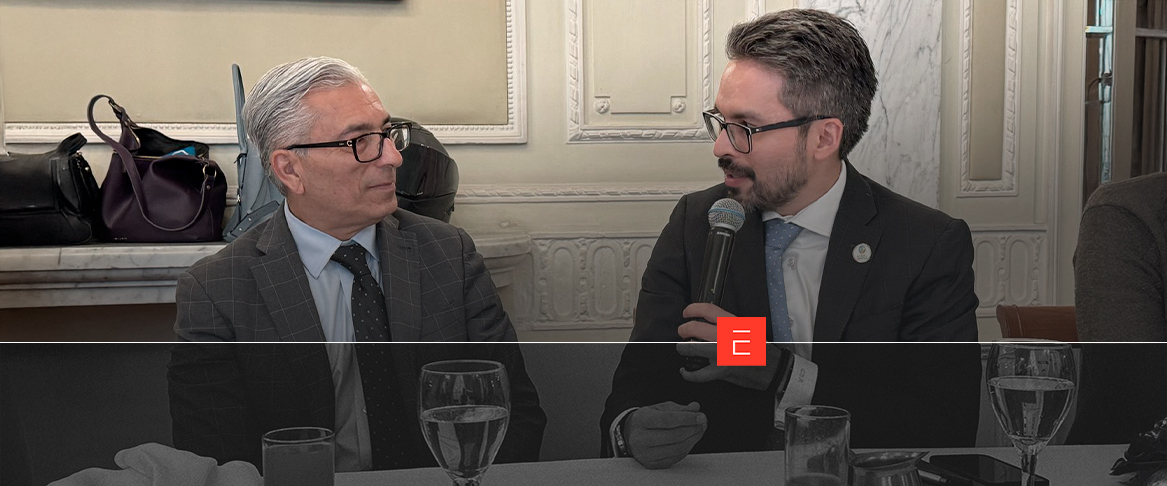ECIJA Participates in Joint Session between the Mexican Bar Association and AMIA
On March 20, Carlos del Razo, senior partner of the Sustainability and Environment practice at CIJA Mexico, participated in the joint session between the Mexican Bar Association (through its Environment and Sustainability Committee) and the Mexican Academy of Environmental Impact (AMIA). The session held an open dialogue with Engineer Nicolás Mendoza, Director General of Sustainable Territory at the Ministry of the Environment of the State of Mexico.
During the session, key topics related to ecological territorial planning, environmental impact and risk assessment, and the challenges facing the country’s most populous state in terms of urban planning and sustainable territorial development were addressed.
Carlos del Razo actively participated in an enriching exchange of reflections and proposals with the state authority, highlighting areas of potential collaboration between AMIA members, project sponsors, and regulatory bodies. In particular, the need to strengthen the environmental impact assessment tool and promote good practices was highlighted.
Mendoza outlined the current situation in the State of Mexico: 127 municipalities, 22 POELs, and the need to finance various ecological planning programs. For context, he explained that the state generates approximately 16,000 tons of urban solid waste, in addition to the 8,000 tons of the same type of waste from Mexico City, which must be properly treated and managed within the state. Furthermore, approximately 45% of the state’s surface area belongs to a protected natural area, either federal or local.
The existing areas of opportunity in land use planning were also addressed, along with the need to monitor existing plans and the importance of ensuring that these reflect municipal planning and protected natural area policies (both federal and state) to ensure that regulatory and land use planning criteria are consistent, especially in highly urbanized areas and sensitive ecosystems.
Specific cases were also analyzed, such as the Coatzacoalcos PDU, which was subject to a federal environmental impact assessment due to the lack of an SEA, and the situation in the municipality of Guadalajara, which still does not have POELs, which opens the door to strategic litigation given the existence of potential enhancers and diminishers in its territory.
At the end of the session, Carlos especially thanked the coordinators of the BMA Environment and Sustainability Committee, Lourdes Hernández and Cintya Altamirano, as well as Mr. Héctor Herrera for the invitation and organization of this important session, part of the institutional collaboration between the BMA and AMIA, which constitutes a key space for the development of constructive proposals in the areas of sustainability and environmental policy.
ECIJA Mexico
socios.mexico@ecija.com
+52 55 5662 6840
www.ecija.com





